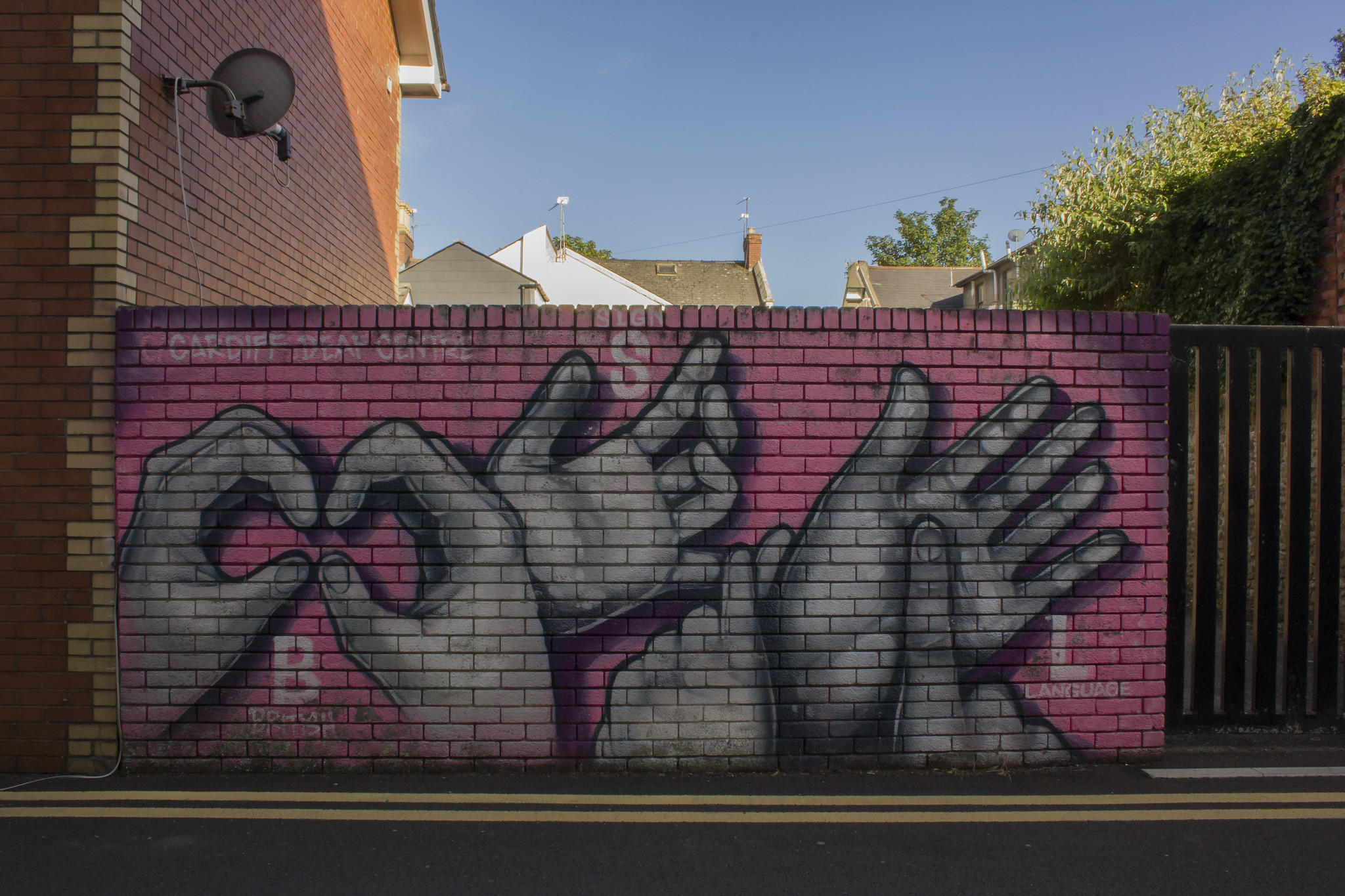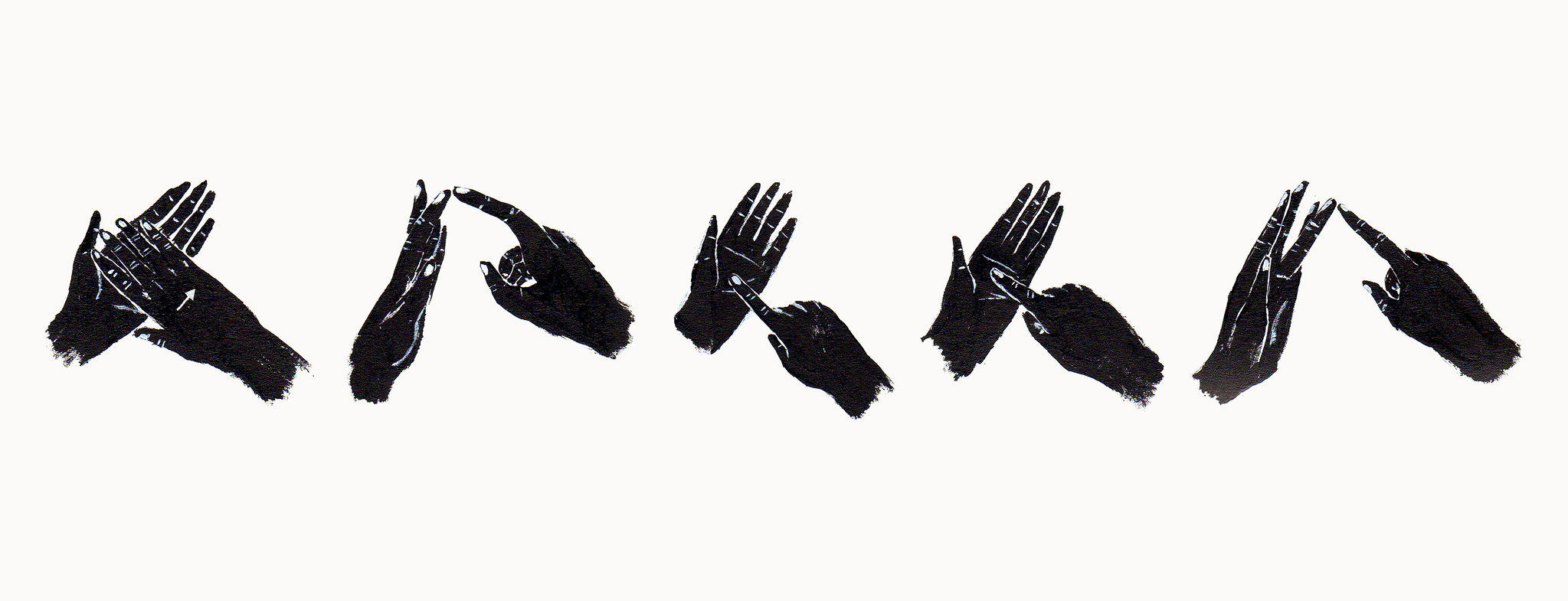Did you know that there are as many as 50,000 deaf children in the UK? These make up a percentage of the 12 million in total across the UK who suffer from deafness, hearing loss, or tinnitus.
Also, there are a total of 150,000 people who use British Sign language in the UK, and 87,000 of these people are deaf and may use the language as their first.
Learning sign language is one of those skills that many people wish to develop, even if they just want to grasp the basics, but not everybody knows how. In this guide, we’re looking into sign language, how to find sign language lessons, and what the educational framework is for sign language.
Sign language is a crucial communication skill for many, and there is a school of thought that suggests that everybody should at least be able to use some basic sign language to communicate with others.

Formal Sign Language Qualifications

BSL is the gold standard for signing in the UK, and the use of signs and signals in this language varies from elsewhere in the world. In the UK, there are several main qualifications for British Sign Language (BSL). These qualifications are offered by various organisations and institutions, including Signature, the Institute of British Sign Language (IBSL), and the Scottish Qualifications Authority (SQA). Here are some of the main qualifications:
Signature Level 1 Award in British Sign Language: This qualification introduces learners to BSL and covers basic vocabulary, grammar, and conversational skills. Some people think we should all have this level of proficiency.
Signature Level 2 Certificate in British Sign Language: Building on Level 1, this certificate delves deeper into BSL, expanding vocabulary and grammar knowledge, and enhancing conversational ability.
Signature Level 3 Certificate in British Sign Language: This certificate is a more advanced qualification, covering a wider range of topics and requiring a higher level of fluency and understanding of BSL.
Signature Level 4 Certificate in British Sign Language: This is an even higher level qualification, aimed at those who wish to achieve a high level of proficiency in BSL, including complex language and a wider, more extensive vocabulary.
Level 6 NVQ Diploma in BSL: This qualification is at level six, which is equivalent to an undergraduate degree and is designed for those who want to pursue careers in interpreting or teaching BSL at an advanced level.
Postgraduate qualifications: Some universities offer postgraduate qualifications in BSL, such as a Master's degree or a Postgraduate Certificate in BSL. The study may be combined with other subjects when a student reaches this level. For instance, some universities offer a course in Sign Language With Deaf Studies.
It's important to note that these qualifications may vary slightly depending on the awarding body and the specific course provider.
Finding Sign Language Lessons

The process of finding sign language lessons varies greatly depending on where you are based in the UK, as well as whether you would prefer in-person lessons or you would rather learn online. While finding sign language lessons in London may be simple, finding them elsewhere can be more of a challenge, so online learning is valuable.
Superprof
For online lessons, Superprof can be the perfect place to find a tutor, either to help you to learn the BSL framework or pass qualifications, or just to pick up the basics. Superprof tutors have a wide variety of different tuition methods and can help you to achieve your specific goals, whether it is just knowing some basics in case of an emergency, or fluent communication.
Superprof’s search makes it easy to find sign language teachers and lessons in your area, with tutors in Birmingham, Manchester, and elsewhere in the UK. This means that for those who are keen to learn in person, with the option to meet and practice your sign language skills, you can look for those who are already in your area.
Online Courses
There are numerous online platforms offering sign language courses, including websites like Udemy, Skillshare, or Coursera. These courses may be self-paced or instructor-led and can be a convenient option for those unable to attend in-person classes, who may not be close to learning hubs and cities to take sign language lessons in Manchester. They are also often quite an affordable way to learn but keep in mind the fact that you will need to be very self-motivated, and you may not have the chance to ask questions.
For those who prefer the "old-fashioned" method, there are also some very good books on the market with detailed illustrations.
Deaf Organisations
Deaf organisations and community centres often provide sign language classes or can refer you to reputable instructors or courses in your area. Reach out to them directly or check their websites for information. Sense is a huge charity in the UK and they provide a monthly lesson kit for a subscription price of £10 a month.
Organisations such as Signature (formerly known as CACDP) or the British Deaf Association may have listings of accredited sign language courses or instructors on their websites.
Signature offers a British Sign Language For Beginners course that costs £9.99.
The online British Sign Language (BSL) course for beginners is offered by Signature, the leading awarding body for British Sign Language qualifications in the UK.
Accredited by the CPD Certification Service, this immersive program incorporates informal clips, receptive practice, brief quizzes, vocabulary lessons, and more to introduce BSL and foster deaf awareness. Additionally, completion of the course earns participants 1 CPD point, contributing to their CPD portfolio.
Local Groups
This is where you will be relying on a bit of fortune regarding the deaf community near you, such as some of the sign language organisations in Glasgow. It is much better in some places than in others. Fortunately, there are also some communities online that may be an option.
Joining online communities or forums related to sign language or deaf culture can help you connect with individuals who may know of sign language classes or instructors in your area.

The Benefits of Learning to Sign
There are many reasons and benefits of learning how to sign. Even picking up the very basics can show that you care and are willing to put in the effort for those who can’t communicate in other ways.
Learning sign language promotes empathy and inclusivity by fostering a deeper understanding of the challenges faced by deaf and hard-of-hearing individuals. It encourages empathy towards diverse linguistic and cultural communities.
Other benefits include:
- Proficiency in sign language opens up diverse career opportunities. These may include roles as sign language interpreters, educators, advocates, and counsellors, or in fields where communication with deaf individuals is essential, such as healthcare or customer service. There are thousands of people employed in this field in the UK, and it can provide a very fulfilling career. Even those who don’t work in the area may find their skills come in very handy. For instance, if you have a deaf visitor at work.
- Sign language is not just a means of communication but also a part of deaf culture. Learning sign language fosters understanding and appreciation of deaf culture, including traditions, values, and experiences.
- Studies have shown that learning a new language, including sign language, can have cognitive benefits such as improved memory, problem-solving skills, and multitasking abilities.
- Knowing sign language enables individuals to connect with the deaf community, fostering friendships, and building social networks.
- In an emergency, if you need to communicate with somebody in sign language, it helps to at least have some basic knowledge.
- Learning sign language can be personally fulfilling and rewarding. It offers a sense of accomplishment, cultural enrichment, and the opportunity to form meaningful connections with individuals from diverse backgrounds. Lots of people are inspired by those who go the extra mile and learn the language even when it is not necessary, and plenty of us would love to learn to communicate in this way.
Benefits vary from one person to the next, of course, but for those who have the time and desire, it is a constructive and positive thing to do.
Differences Between BSL and ASL
Some people wonder if these are interchangeable. Is it possible to learn the other and just pick up the differences in practice? Absolutely not. British Sign Language (BSL) and American Sign Language (ASL) are two distinct sign languages with their own grammar, vocabulary, and cultural influences.
While both are used for communication by deaf and hard-of-hearing individuals, there are several key differences between BSL and ASL, such as syntax differences. ASL and BSL both have their own distinct grammar and syntax. ASL often uses a subject-object-verb (SOV) sentence structure, which differs from the subject-verb-object (SVO) structure typically used in English.
BSL uses a two-handed manual alphabet system, where each letter of the alphabet is represented by a specific handshape. ASL uses a one-handed method.
Learning Sign Language With Superprof
As well as many amazing organisations in the UK supporting learners, Superprof has many tutors based all over the country including sign language tutors in Leeds and elsewhere in the country, allowing people to learn how to speak the language fluently, or just pick up some basics to be able to greet people and have a basic conversation.
Our tutors are from a range of backgrounds and can help you to pursue qualifications or just learn for your own personal development.
Summarise with AI:

















